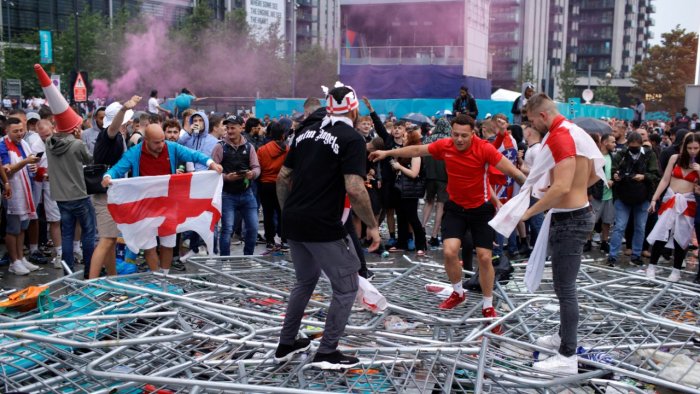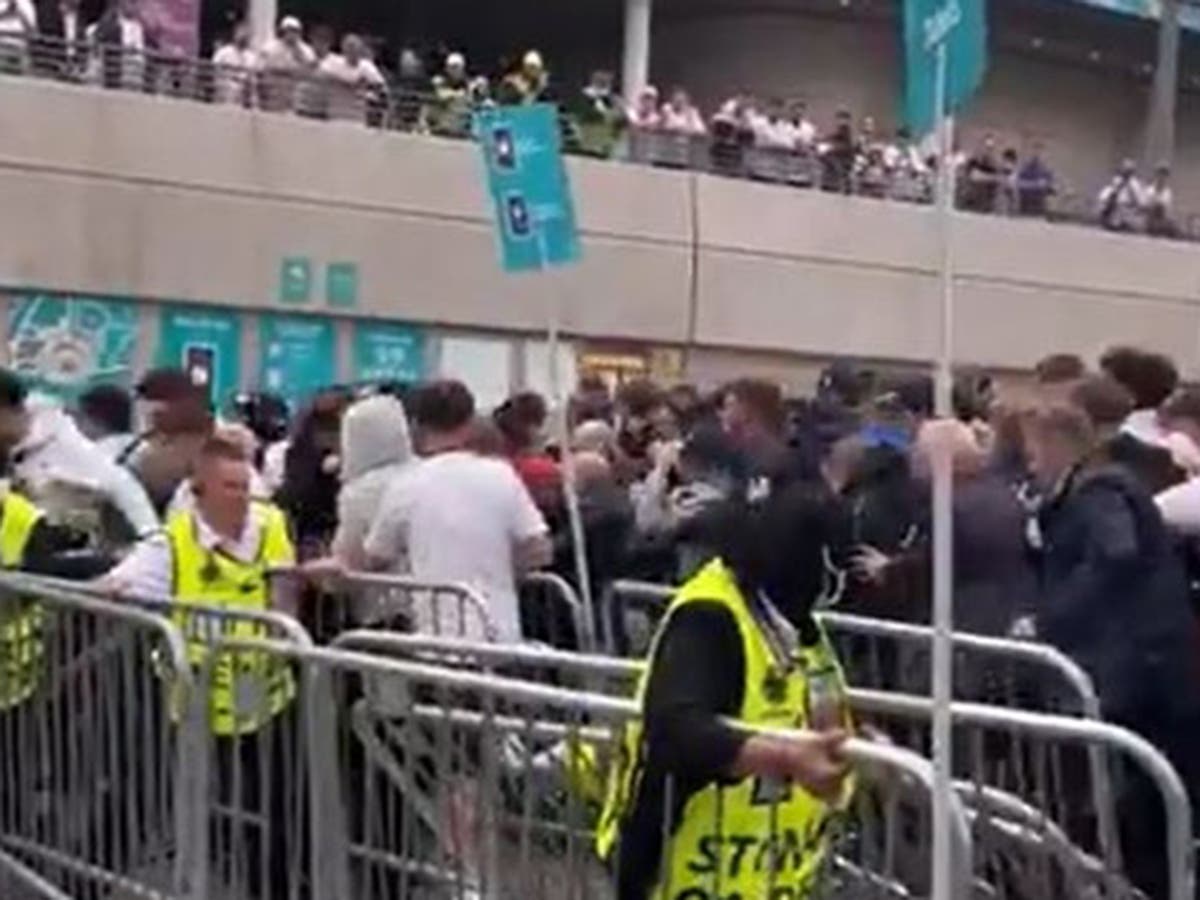
Comment
This collection is put together for the purpose of learning, not to blame or accuse. A crowd incident happened and it was dealt with. For crowd safety practitioners it is important to understand how could this have happened in the way it did and what we can do to improve in the future.
This has been added to the near miss collection because that is what it was. This event came under unprecedented attack by non ticket holders in attempting to breach the stadium. This could have lead to serious injury or the game being abandoned.
Although the focus is on the troubles outside the stadium, it must be remembered that this was the first full capacity event since the pandemic lockdowns and 60,000 people attended with the purpose of enjoying the match. Our focus on the external problems have tarnished this and taken the focus off of what was the conclusion of a fantastic tournament.
report
AN INDEPENDENT REVIEW OF EVENTS SURROUNDING THE UEFA EURO 2020 FINAL AT WEMBLEY
Baroness Casey’s independent review into events surrounding the UEFA EURO 2020 Final at Wembley Stadium has been published today.
Euro 2020 final: 'Lawless yobs' behind 'six-hour siege' of Wembley, says FA chief
The crowd trouble at this month’s Euro 2020 final at Wembley has been described as a “six-hour siege” by “lawless yobs” by Football Association chief Mark Bullingham.
Fans fought with stewards and police as they attempted to break through gates at Wembley on 11 July.
Confessions Of An Ex-Steward: The Scary Truth Is The Crowd Always Holds The Power
As chaos erupted in Wembley Stadium on Sunday angry fans screamed at stewards repeatedly to “do their f***king job.”
By that, they meant for the men and women in luminous yellow jackets to, not only stem the flow of ticketless people laying siege to stadium barriers but also hunt down those who’d successfully broken into the stadium.

England - Italy 11.07.2021
— HooligansTV (@HooligansTV_eu) July 11, 2021
English fans attack other English fans who are storming Wembley without tickets.#Euro2020Final #Englandfans #ENG #EURO2020
Video @cwtchcaerdydd pic.twitter.com/bP5rnd7UeH
Fan violence the only thing that disgraces England in Euro 2020 final defeat
England lost on penalties, but the only tarnishing display was the actions of the fans who tore up the city and forced entry into Wembley without tickets
One hour to go at Wembley Park. #Euro2020Final pic.twitter.com/OAS0devPJK
— Philip Sime (@PhilipSime) July 11, 2021
Police now holding the line at the top of the steps. pic.twitter.com/tvp9RhjMmt
— Philip Sime (@PhilipSime) July 11, 2021
Euro 2020: Met denies Wembley police operation failed
The Met Police has denied its policing operation at the Euro 2020 final failed, claiming it had warned Wembley that many ticketless fans were on the way.
Fans fought with stewards and police as they attempted to break through gates for Sunday’s England v Italy match at the stadium.
The checked shirt goon and his sh1tbag pals nowhere to seen in this one 🙄
— Red Issue (@RedIssue) July 12, 2021
ICJ 💪 pic.twitter.com/ZvBYUaS2Vv
Football ‘Hooliganism’, Policing and the War on the ‘English Disease’
Clifford Stott and Geoff Pearson

Euro 2020: Police 'held back' from confronting Wembley intruders at final, officer alleges
An officer who was present during the chaotic scenes claims his superiors were reluctant to use force because of concerns over “brand image”.
Violent and Antisocial Behaviours at Football Events and Factors Associated with these Behaviours A rapid evidence assessment
by Lucy Strang, Garrett Baker, Jack Pollard, Joanna Hofman

Euro 2020: England vs Italy final at Wembley could have been abandoned without intervention of officers, says Met Police
19 officers were injured when they “confronted volatile crowds” in the capital after the game. A total of 51 people were arrested across London, 26 of which were arrested at Wembley.
‘It’s become fashionable’: Practitioner perspectives on football hooliganism involving young people Richard Hester, Nick Pamment
Abstract
Senior officers responsible for policing football highlight a concerning increase in football hooliganism involving young people in England and Wales. This study is specifically concerned with people under 18 years old that are engaged with hooliganism in connection with football matches, which is an under-researched problem despite recent high-profile incidents. Surveys and interviews with football club safety officers, and police officers involved in football policing were conducted to gain a first-hand insight into this issue. Freedom of Information requests were sent to the Home Office, to establish data trends in youth arrests, banning orders and disorder at football. Despite the concerns of senior police officers, it was found that there is no readily available Home Office data on football hooliganism involving young people. The study highlights that this issue is perceived to be increasing, with children as young as 10 being involved. Whilst there is some indication that football banning orders are being used on under-18s, this is currently seen as a last resort for police forces with a range of interventions being used to divert young people away from football hooliganism. However, there is no nationally adopted approach to managing this issue. Youth projects have had successful results in preventing under-18s from going on to reoffend in a football context. Best practice interventions are recommended, which if adopted by football clubs and police forces may help to minimise the impact of football violence involving young people.
On order and disorder during the COVID-19 pandemic Stephen Reicher And Clifford Stott
In this paper, we analyse the conditions under which the COVID-19 pandemic will lead
either to social order (adherence to measures put in place by authorities to control the
pandemic) or to social disorder (resistance to such measures and the emergence of open
conflict). Using examples from different countries (principally the United Kingdom, the
United States, and France), we first isolate three factors which determine whether people
accept or reject control measures. These are the historical context of state-public
relations, the nature of leadership during the pandemic and procedural justice in the
development and operation of these measures. Second, we analyse the way the crisis is
policed and how forms of policing determine whether dissent will escalate into open
conflict. We conclude by considering the prospects for order/disorder as the pandemic
unfolds.





